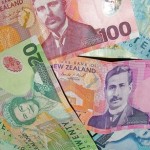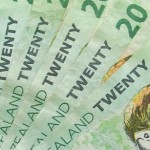US dollar gained against the Japanese yen on Monday, paring a portion of its last weeks loss, after a surge in Russian shares eased fears that results from Crimean referendum will cause an immediate escalation in geopolitical tension. Demand for safe haven assets, such as the yen and the Swiss franc seemed to be reduced.
USD/JPY reached a session high at 101.82 at 8:39 GMT. Support was likely to be received at March 14th low, 101.21, while resistance was to be met at March 14th high, 101.86. The Micex gauge of Russian stocks rose 1.5%, after it lost 7.6% last week.
Preliminary results from Crimea’s referendum yesterday revealed that 96% of voters in the peninsula supported leaving Ukraine and joining Russia. The Ukrainian government, the European Union and the United States consider this vote as illegitimate, while the Russian Federation said that it “fully met international norms.”
According to Germany’s Foreign Minister Frank-Walter Steinmeier, a level of sanctions against Russia is to be decided on Monday, with European Union foreign ministers holding a meeting in Brussels.
At the same time, according to a statement by the White House, US President Barack Obama told Russian President Vladimir Putin the United States would not ever recognize the vote in the Black Sea peninsula.
“We continue to focus on the details about the Western sanctions and Russia’s response to them,” said Yuji Saito, the director of foreign-exchange at Credit Agricole Corporate & Investment Bank in Tokyo, cited by Bloomberg News. “The market will be whipsawed as political games continue.”
At the same time, Bank of Japan (BoJ) Governor Haruhiko Kuroda said that the central bank is ready to introduce adjustments in its monetary policy, in case it foresees a situation, which would obstruct the accomplishment of banks inflation objective, according to the Asahi newspaper.
The sales-tax increase seems to undermine BoJ Governor’s efforts to achieve 2% inflation target, as Japanese economy is projected to contract 3.9% during the three months from April, according to a Bloomberg survey of economists, ending a projected six straight quarters of expansion.
However, on Friday the minutes of Bank of Japans policy meeting in February showed that many officials saw the nation’s economy moving toward the inflation target of 2%, which is considered as providing price stability.
“We continue to look for opportunities to buy USD/JPY,” Greg Gibbs, the head of Asia Pacific markets strategy at Royal Bank of Scotland in Singapore wrote in a report today, as imparted by Bloomberg. “This article may be a sign that the BOJ is about to step up its rhetoric to increase expectations of further easing. This may help stabilise the USD/JPY and suggests it is time to again take a long position.”
Last week Bank of Japan maintained its record stimulus, keeping its pledge to expand the money supply by an annualized pace of 60 trillion to 70 trillion yen, in line with analysts’ forecasts. The central bank also revised down its forecast regarding exports, but raised its assessments of industrial output and investment.
Meanwhile, at 12:30 GMT today the Federal Reserve is to release the results from its business survey of manufacturers in the area of New York. This is the first indicator to show the development of manufacturing activity in the United States during the current month. The median estimate by experts showed that the New York Empire Manufacturing Index probably advanced to a reading of 6.25 in March from 4.48 in February. Values above zero are indicative of expansion in the sector.
The gauge of industrial production in the United States probably climbed 0.2% in February compared to a month ago, when output declined 0.3%.
The Federal Reserve Bank policy makers are expected to hold a meeting on March 18th-19th. Experts projected that the bank will probably cut its monthly asset purchases, which tend to devalue the national currency, by another 10 billion USD. The central bank has reduced its monthly monetary stimulus to 65 billion USD this year from 85 billion USD in 2013.
On Friday a monthly survey by Thomson Reuters and the University of Michigan showed that the preliminary reading of their index of consumer confidence for the United States slowed down to 79.9 this month, which has been the lowest level since November. The final reading for February was 81.6, while experts had anticipated that the index will advance to 82.0 in March.
Elsewhere, the yen was falling against the euro, with EUR/JPY cross up 0.23% on a daily basis to trade at 141.38 at 8:42 GMT. GBP/JPY pair was also gaining today, up 0.37% to trade at 169.38 at 8:52 GMT.





